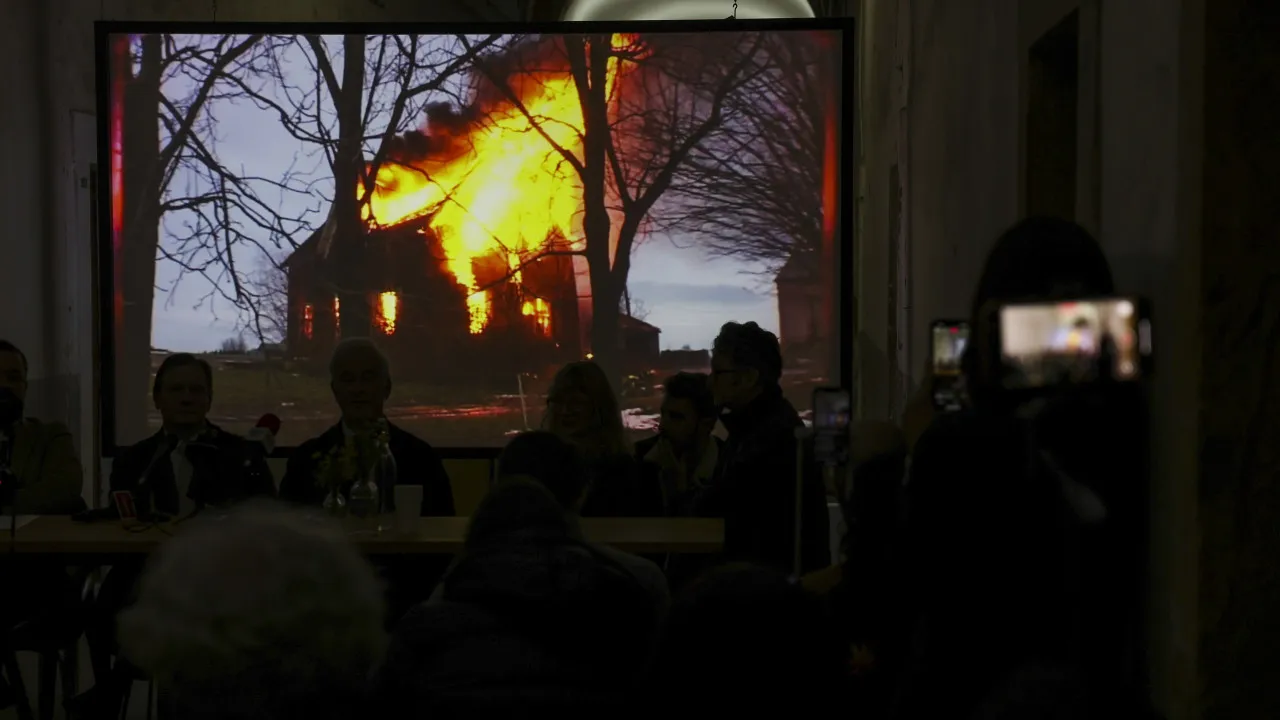Portuguese researcher Leonor Areal presents a film essay in Lisbon on Friday, drawn from the archives of the Cinemateca Portuguesa, in which she claims that rare images of the poet Fernando Pessoa exist.
The “Where is Pessoa?” project is based entirely on a 1913 silent film, digitized by the Cinemateca Portuguesa, in which people are seen leaving a performance at the former Teatro República, now Teatro Municipal São Luiz, in Lisbon.

In her visual essay, Leonor Areal invites the viewer to take a closer look at this century-old film and the dozens of people who appear as they leave a concert, most of them men, in suits and hats, many with moustaches. Among them, Fernando Pessoa is wanted.
Leonor Areal told the Lusa news agency that the film contains “the first and only moving images of the great poet, as well as other personalities of the time”.
“Of course, there is no science to be sure, but I have this conviction and I give the viewer the opportunity to confirm, or not, what I think. I’m not the holder of the truth, but everyone will have their own truth,” he declared.

Leonor Areal says she made the film out of curiosity – “research is done out of curiosity” – in the face of these silent images of people crowded in front of a theater, assuming, from the poet’s diaries, that Fernando Pessoa had been there.
“I call it a film-essay, because in it I reproduce the path of discovery and analysis of the original film, my doubts and indecisions, while presenting the viewer with period images that enable him to identify the people filmed”, he explains.
The demonstration of his research is accompanied in the film by texts from the period, by Fernando Pessoa and music critics, which help to contextualize the 1913 film. The author was 24 years old.
“It’s up to viewers to draw their own conclusions,” says the researcher.
Leonor Areal, who trained in Portuguese studies, cinema and communication sciences, has devoted much of her research to Portuguese cinema.
In addition to “Onde está o Pessoa? “, he has signed other documentaries, including “Nasci com a trovoada – Autobiografia pósuma de um cineasta” (2017), dedicated to director Manuel Guimarães, “Aqui tem gente” (2013), with residents of the old Bairro da Torre, “Fora da Lei” (2006), about two women who attempt to marry in defiance of the law, and “Ópera aberta” (2004), dedicated to the staging of José Eduardo Rocha’s opera “Os Fugitivos”.








